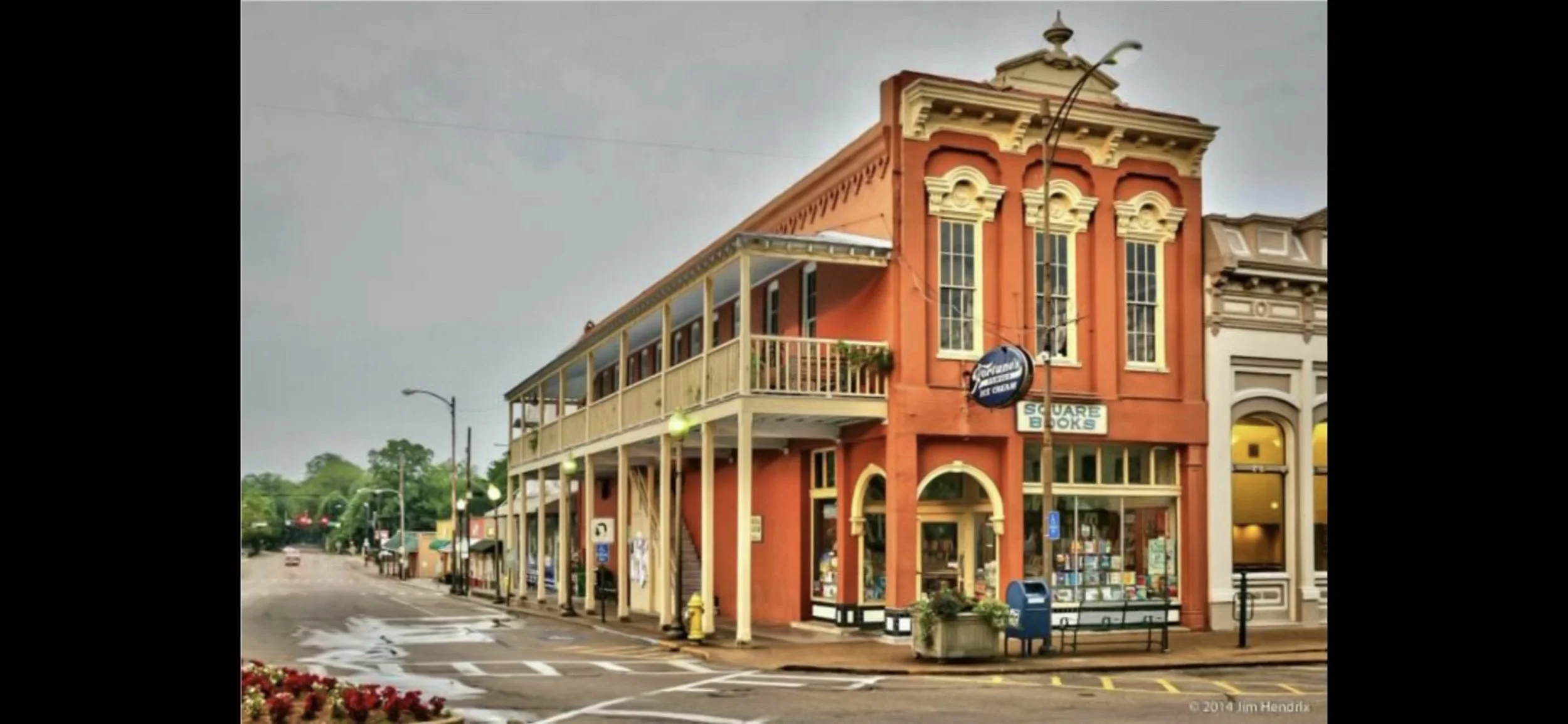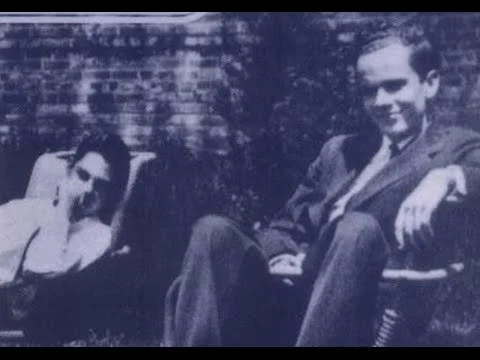to be “informed”
In his 2011 documentary “Walker Percy” Win Riley paints a vivid picture of Percy’s teen and young adult years, lived in the home of his cousin, the noted poet, planter and public intellectual William Alexander Percy. “Uncle Will” took in the Percy boys and their mother following the death by suicide of father and husband, Leroy Pratt Percy in 1929. It would not be long before Will was left to raise the three boys on his own, their mother Martha Susan Phinizy dying in a suspected suicide-car accident in 1931.
Early in the film Shelby Foote describes the context of the Percy boys’ newfound life in Greenville, MS:
“William Alexander Percy had a sizable library, and he could do this thing all great teachers do, and if they do that they've done everything: he could communicate his enthusiasm for what he was teaching, or talking about. When he got to talking about Keats, what you wanted to do was get the hell out of there and go home and read some Keats!”
Jay Tolson, Percy’s biographer gives further detail: “There were always people coming through. Musicians. Writers. People who were studying the South; a number of early leaders in the proto civil rights movement. And everyone would come to Will's house, because this was the place to go. And Walker was there on the edge of all that.”
And finally, Walker describes the tragic yet privileged situation in which he landed: “To have lived in Will Percy's house with Uncle Will, as we called him, as a raw youth from age fourteen to twenty six, a youth whose only talent was a knack for looking and listening, for tuning in and soaking up -- was nothing less than to be informed in the deepest sense of the word.”
Walker Percy has become one of my personal patron saints, a subtle yet driving force behind my own life and work. And like Percy, I have found myself - occasionally - in a place like the one Percy describes above, a house or dedicated space frequented by thoughtful people, surrounded by books and artwork, bittersweet coffee and cinnamon-laced baked goods in the air, fresh air, trees, rushing water, an environment that opens the mind and encourages what Alice O’Ferrall via Rachel Carson calls “A Sense of Wonder”.
Alice and Dick O’Ferrall’s home at Alpine Camp for Boys, Laity Lodge on the Frio River near Leakey, TX, The Gymnasium at Camp Desoto on Lookout Mountain, Casa Balthasar in Rome, Italy, Jan and Eugene Peterson’s home on Flathead Lake, western Montana, Beatrix Potter’s home in the Lake District of England, L’Abri in Switzerland. Special places, founded and maintained by true Saints do exist. My desire is to replicate places like this, to bring them near to students by placing them in midst of thriving collegiate settings, beginning with Oxford, MS. I want to establish a place adjacent to and in positive relationship with the university with quiet space for studying, common space for connecting and collaborating, a kitchen with the basic fuels for collegiate life - coffee and snacks - an environment that invites thoughtful and interesting visitors, in order to promote a true “sense of wonder” in ways that other institutions cannot do on their own.
Making the most of a real student space requires a small coterie of college graduates (staff) committed to assisting collegians onto and along a trajectory from adolescence to adulthood. The primary foci of these staff members are the students who come to call a Student Space “home”, which is exactly what students do with spaces to which they become attached. Hospitality skills like meeting and greeting, planning and cooking meals, name recognition, and small talk are critical. A staff member, depending on their interests and expertise might also offer a Bible study, book study, film night or just the chance to take a walk and talk regularly. As time goes on staff have the opportunity to help students navigate both campus life as well as life far beyond the university.
I have begun to think about and describe this kind of pastoral work as “redress”, a term developed by Seamus Heaney winner of the 1995 Nobel Prize in Literature. During his time as Lecturer in Poetry at Cambridge University, Heaney explored the work of poets from the perspective of “redress”. Redress is the process of perceiving - in one’s self and in society - the missing or mis-placed pieces, the spots where there is an imbalance that calls for the placement of a “counter-reality”, that which will move a situation or person toward “wholeness” (not unlike what the Old Testament refers to as “shalom”). This “redressive” effect of poetry involves the “glimpsed alternative” to an accepted norm that the poet gives voice to through the written and spoken word. Quite often this is a “revelation of potential”, the hidden potential either having been threatened or wholesale denied by circumstances (think MLK’s Letter from a Birmingham Jail).
This truly is pastoral language, and Heaney describes the poetic enterprise in way that is nothing short of faith, hope and love applied judiciously. “Ministry” in any Christian sense of the practice, flows from a clear vision of a “counter-reality”, a reality in keeping with the biblical triad of truth, goodness and beauty. Christian hospitality involves seeing in others as well as in ourselves “glimpses” of the work of God’s Spirit, a process the church calls “sanctification”. Heaney drives the point home this way: “Poetry is the revelation of the self to the self as restoration of the culture to itself”. And so, what we might call “the poetics of ministry” arise from the conviction that coming to terms with our own “self” is both a requirement and a fruit of cultural participation. Helping students come to terms with who they are, in whose image they are made and re-made, this gives them both the vision and the resilience to begin to see their place in the wider cultural enterprise. And it is this discernment of “calling” that is the sin qua non of taking our place in the world and so bearing witness as we love and are loved by our neighbors.
For the above to happen, students must have places and people who provide parameters for the pursuit and discovery of their truest “self”. As a Christian, I believe that our truest self cannot be found through the self-consumed “self-actualization” promoted by secularism. I also believe that the self-protective and bitter stasis that so often characterizes the contemporary church provides no fit habitat for honest Word and Spirit formation. Neither setting seems suited for the honest, slow and often scary process of coming to terms with the world and its Maker. There must be “safe places” adjacent to and amidst our cultural institutions where budding adults can struggle and strive - with careful guidance - for what is “actual”, that which the Apostle Paul promised the Greeks of his day was “very near” (Acts 17). There must be spaces and places dedicated to practices long associated with growth and maturity - rest, Scriptural mediation, prayer, conversation, collaboration - hospitality.
Places do exist that provide the kind of hospitality that encompasses Christian formation. Summer camps stand at or near the top of the list. There are institutes and programs adroitly dedicated to the same. Students at times find a place within institutions like a university or local church where they are able to pursue physical, mental and spiritual formation with good guidance. But these places and programs often occur happenstance, and they certainly are not the norm.
Some of the best language I have found to describe what we are after through the establishment of dedicated Student Spaces comes from Casa Balthasar in Rome, Italy. I have never been to Casa Balthasar, but I have interacted briefly with the Staff there and I have poured through their website. I also am continually being shaped by the works of Hans Urs von Balthasar. The Villa that became the Casa was set apart in 1990 by then Cardinal Ratzinger (Pope Benedict) to honor and promote the work of Balthasar, the Catholic theologian whom Henri de Lubac described as "the most learned man in Europe in the twentieth century”. The language used to described the commitments behind Casa Balthasar is some of the most approachable and fulsome that I have found regarding spiritually formative ministry:
"...the house does not look to recruit candidates for a specific destination or to introduce an exclusive spirituality, but it wants to be open to everything which is healthy and alive today in the Church."
"Shared meals are an important part of the community life..."
"By the study of great authors of yesterday and today, the students develop their capacity to “judge everything” (1 Cor 2:15), and to integrate faith and life, cultural and spiritual formation, professional competence and sanctity."
Here we are, back at Will Percy’s, back at summer camp, back at Laity Lodge, faced with a house that literally “embodies” in its participants the rudiments of becoming “informed” through the people and practices that the Scriptures associate with Love.
The establishment of a Student Center, a Hospitality House for students at Ole Miss, seems like a timely move to make in terms of creating and maintaining places and ways to ensure the “wellness” of students. I can envision a network of Student Spaces at SEC campuses dedicated to the same, but first things first:-)
We need a group of committed financial supporters in order to realize this vision. Hopefully we will have the support of foundations, those committed to hospitality oriented ministry, those committed to Ole Miss, and those committed to their own children and grandchildren. If you have read this far, thanks for your willingness to learn about this venture. I hope to see you soon on the steps of someplace special!
Bill Boyd
Founder and Director
The Institutes for Human Being


